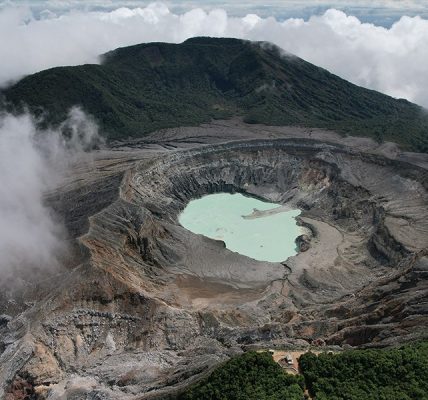India’s suspension of water-stressed relations with Pakistan vs. the Indian-backed Insurgency in Baluchistan
Pakistan’s military already appears stretched. The Taliban are fighting in Pakistan along their northwestern border. The western province of Baluchistan is also being wracked with a violent and brazen insurgency. Pakistan claims those separatists are backed by Indian intelligence. Just hours before the Indian strikes, Pakistan’s military said separatist fighters struck an army vehicle with an improvised landmine, killing 7 soldiers. “Nefarious designs of India and its proxies operating on Pakistani soil will be defeated,” the military statement said.
Pakistan’s government said Wednesday’s strikes are an act of war. The Pakistan military said 31 people had been killed.
It appeared the deadliest strikes hit a mosque in the southern Pakistani town of Ahmedpur East. Those strikes killed 14 people, including members of the family of Masood Azhar, the chief of Jaish-e-Mohammed, a U.S.-designated terrorist group that has conducted deadly attacks in India in the past.
While India has signaled that it does not seek an escalation, “the Pakistan establishment will be under tremendous pressure” to respond, Donthi said, because of the death toll and the widespread nature of the strikes. “I’m afraid if the international community doesn’t step in, especially the U.S., then we are only seeing the beginning of these escalatory strikes.”
Pakistan said one target was a hydropower dam on a river. Since last month India suspended its decades-old water treaty with Pakistan that divides six rivers between two water-stressed countries, the attack raised hackles. The suspension was part of a series of measures India announced following the militant attack in April. The treaty’s suspension posed a “existential threat” to the people of Pakistan, according to Pakistan’s representative to the UN.
Other strikes landed in Pakistan’s Punjab province, including in a town called Murikde, some 30 miles from Lahore, the country’s second largest city. India has not struck that deep in Pakistan since 1971, said Michael Kugelman, an expert on the region who writes Foreign Policy’s South Asia brief. “What also stands out about these recent strikes is the scale and intensity of them,” he told NPR.
India held emergency drills to prepare first responders for conflict. Volunteers rappelled from the top of a building as sirens went off and firecrackers erupted — apparently to imitate shelling in one drill in the Indian port city of Mumbai. Drills in the India’s capital New Delhi temporarily plunged the Parliament and several top government offices in darkness.
Praveen Donthi, senior analyst for India with International Crisis Group, said outside parties should have intervened more forcefully to prevent military strikes. “This should have been stopped before it escalated,” Donthi said.
Inskeep: I’m interested in listening to you because you told me that India may have struck partly because of public pressure to do something. Public pressure has led to Pakistan being pressured to strike back in some dramatic way.
Diaa Hadid reported in Mumbai, India. Betsy Joles was from Pakistan, while Omkar Khandekar was from Mumbai.
Violation of the Indian War on Air Defenses in Pakistan: Comment on a High-Relevance Report by M. D. Donthi
Praveen Donthi, a senior analyst for the International Crisis Group, told Morning Edition that U.S. intervention is needed in the conflict, but that the president’s statement makes it sound like it is a “benign war that’s been going on and [that] they’re bound to stop at one point.”
India struck earlier this week according to NPR’s Diaa Hadid. We thought it would be it. National security advisers are working on it. There are more strikes today. What do you think about that?
Inskeep: “It’s not done.” India says it’s striking air defenses in Pakistan. Let’s assume that’s true for purposes of this question. When you strike air defenses, it is often to clear the way for hitting something else, to clear out the airspace. Is there an expectation that India could strike yet again?
Donthi: Well, they say it’s an ongoing operation. They’ve said that they’ve hit nine sites. There could be more strikes on the way. Pakistan is under immense public pressure and will retaliate and retaliate strongly because they have casualties unlike the last time.
When India revoked Kashmir’s special status in 2019, and intensified a campaign against residents in the Muslim-majority state, Donthi was referring to.
Two world powers have the same fate: the nuclear powers, the U.S. and the nuclear power: a critical assessment of the crisis between India and Pakistan
“Both are nuclear powers. Donthi said onNPR’s Morning Edition that it takes a miscalculation or mistake to do it. “Both these powers are not completely in control of the escalation dynamics, which the world seems to believe. There is a risk.
Donthi: Yeah, that’s right. President Trump claimed to be close to both the powers, which we know is true, though India and the U.S. have been growing closer in the past 10 years. But there are historic ties with Pakistan as well. And ultimately, the U.S. is the superpower who can bring both the parties to the table.
He said Washington had the best chance of ending the hostilities, because of the country’s historic ties with Pakistan, and its increasing closeness to India.
Praveen Donthi, a senior analyst for India with International Crisis Group, said the international community needed to take the conflict between India and Pakistan seriously.
In his call with Pakistan’s prime minister, Secretary of State Rubio “expressed U.S. support for direct dialogue between India and Pakistan and encouraged continued efforts to improve communications,” according to a State Department statement.
Rohingya refugees in India — two countries trade attacks amid threat of war between nuclear states — a human rights lawyer’s reply to the human rights activist requesting anonymity
Nazir said that his wife was spared because she was pregnant. Nazir said he and a group of other people slept in the park after fleeing. A lawyer, Colin Gonsalves, who is representing the detained people, said the government appeared to have taken advantage of the situation to detain the men. The police did not reply to the requests.
Even as hostilities gripped the public’s attention, human rights activists said Indian authorities had rounded up and detained more than 30 Rohingya refugees from their homes in the Indian capital, including the elderly parents of David Nazir.
In a town in Indian-held Kashmir, local resident NarendarSingh said most of his neighbors fled after the shelling by Pakistan. Resident Sarfaraz Ahmad Mir said Pakistani shelling overnight killed his cousins, a twin boy and girl aged 11-years-old.
Some 25 miles from the Pakistan border, Indian residents piled by the roadside to watch as security forces gathered around a fallen projectile in a field. The mood was more curiosity than fear.
“The potential for greater escalation is very high.” Both countries had a deep bench of military capabilities, he said. They have barely touched the surface so far.
Source: India and Pakistan trade attacks amid risk of war between nuclear states
Blasts over the Jammu-Ahabal-Anantnag border: “Sorry Pakistan, keep on preparing,” the Kashmiri army warned
blasts could be heard over Jammu, Achabal and Anantnag in Indian Kashmir by Thursday evening. An Indian army spokesperson, Suneel Bartwal, told NPR that districts along the line that separates India and Pakistan-controlled Kashmir “have been put on high alert. There is a power cut.
India’s information ministry said its armed forces “targeted Air Defence Radars and systems at a number of locations in Pakistan,” and added “it has been reliably learnt that an Air Defence system at Lahore has been neutralised.”
The blasts appeared to be related to one of the drones, which army spokesman Sharif said had “managed to engage a military target near Lahore.” He said that there were four injured army personnel.
Muhammad Abbas, a 47-year-old groundskeeper in an upscale Lahore suburb, was washing a car when he heard a bang. The person said that a few people were frightened but they still carried on. “Pakistani people are not cowards who hide in their houses. All of us will be affected by whatever happens.
Pakistan’s army said it shot down 25 military drones that fanned over population centers — including the city that houses Pakistan’s general army headquarters.
“This is a serious, serious provocation,” Pakistani army spokesman Maj. Gen. Ahmed Sharif Chaudhary said of the Indian drones in an English-language statement. It seems that India has lost the plot. Rather than going on a path of rationality, it is further escalating in a highly charged environment.”
The staff of the U.S. consulate general in Pakistan were told to shelter in place. Operations were suspended in Indian and Pakistani airports near their border. In both Pakistan and India, a school was near the border.
Babies’ milk powder is included in the emergency list that the parents of one group in Pakistan exchanged with their kids. “Stay calm, stay prepared. May we all remain safe,” the list concluded.


